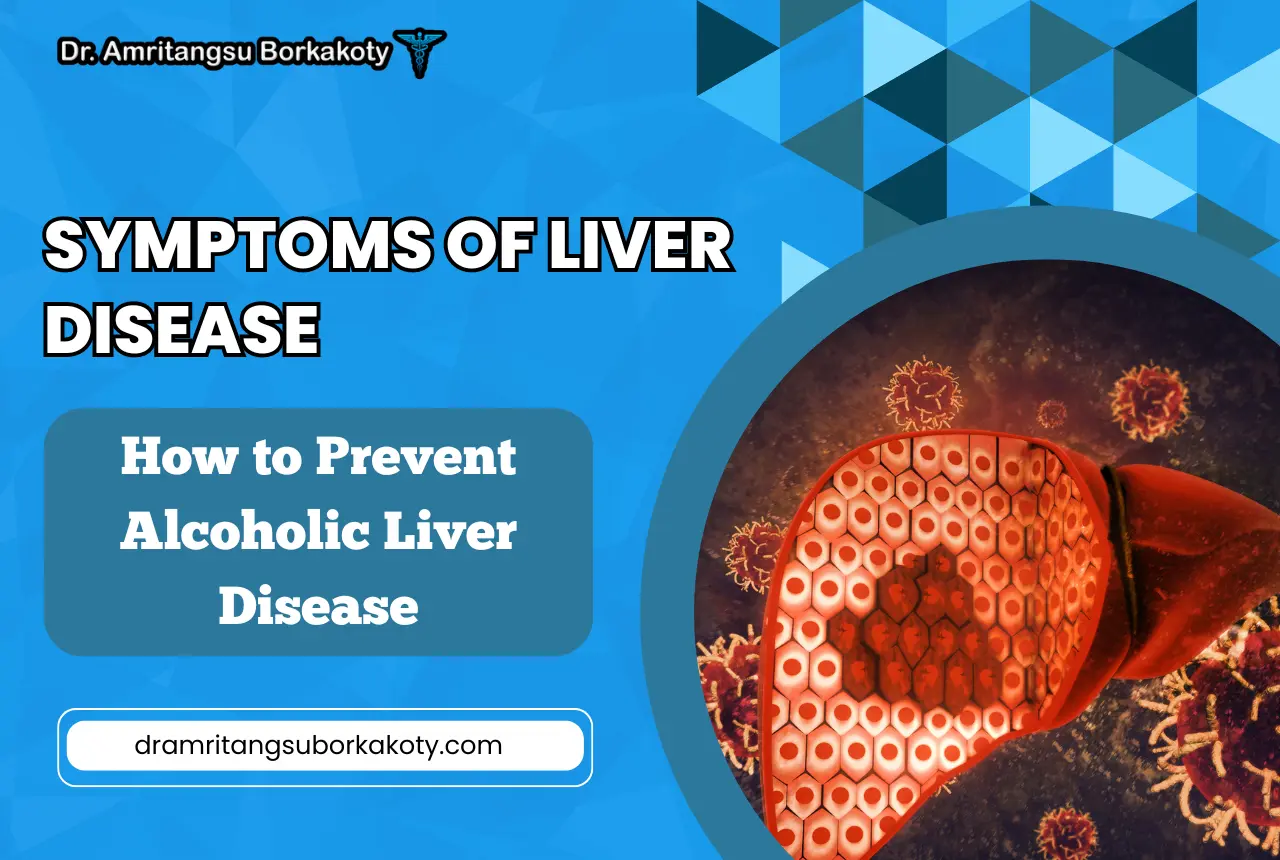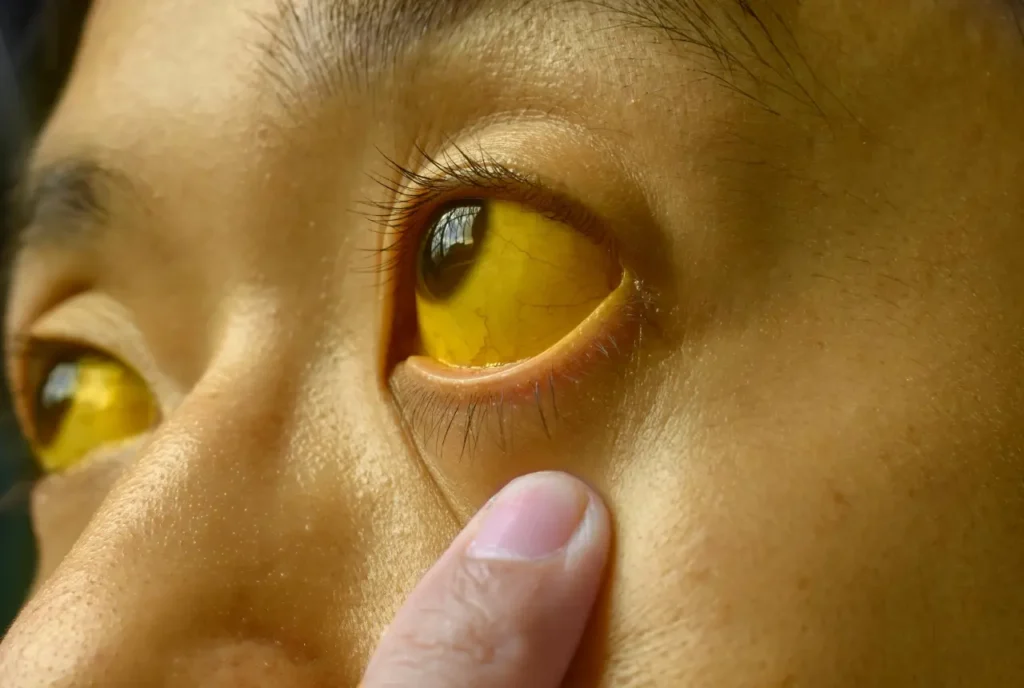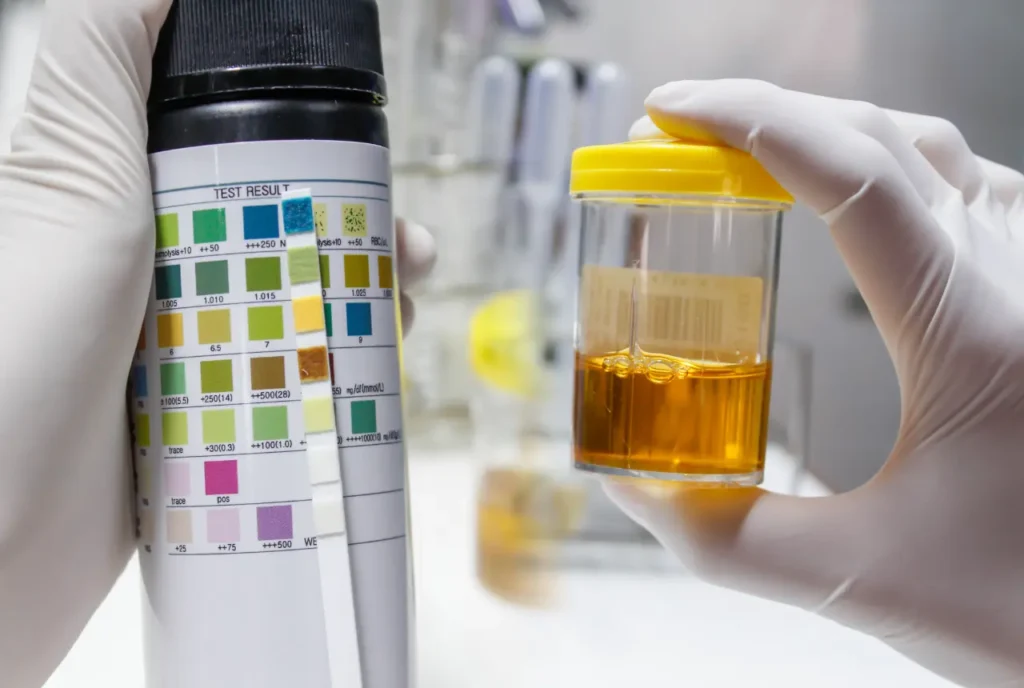
-
 Posted By Dr. Amritangsu Borkakoty
Posted By Dr. Amritangsu Borkakoty -
-
Comments 0
It is time to pay due credit to the most important organ which works behind the scenes to keep your body in good running order and that is your liver. It metabolizes nutrients, clears any toxins, and synthesizes bile for digestion.
Of course, it deals with such chores like most of the time, it performs all these tasks so well that we do not even have to complain. Liver ailments are probably some of the most elusive ailments and can show themselves without much fanfare initially. If they are not addressed on time, some of the effects that may arise include liver failure or cirrhosis.
That’s why such nuances as the signs of the disease in its early stage are so crucial. If liver problems are discovered early enough, the difference between the disease and cure is as good as night and day.
In this post, we’ll explore 7 astonishing symptoms of liver infection that you need to be aware of. Among them, there can be those which you did not expect seeing, as they are not always what they seem to be.
7 Important Symptoms of Liver Infection that You Should Know
1. Jaundice (Yellowing of the Skin and Eyes)

Have you ever looked in the mirror and noticed your skin or the whites of your eyes looking yellow? This yellowing is called jaundice, and it’s one of the clearest signs that something might be off with your liver.
Jaundice happens when your liver can’t properly process bilirubin, a yellow pigment that’s produced when red blood cells break down. Normally, your liver filters bilirubin out of your blood and sends it to your digestive system to be excreted.
But when your liver is infected, this process slows down or stops altogether, causing bilirubin to build up in your blood and give your skin and eyes that yellowish hue.
Consequently, jaundice can be categorized by degree of severity. Some may not even have the yellowing show significantly at all while the yellowing can be really obvious in others.
Again, if there are such changes that you feel on your skin or eyes, then it is wise to seek for a doctor. This symptom could be due to a simple liver infection; it could be hepatitis, cirrhosis or even liver cancer.
2. Dark Urine and Pale Stools

Another telltale sign of a liver infection is a change in the color of your urine and stools. Typically, urine should be a pale yellow, and stools should be brown, thanks to the bile your liver produces to help break down fats.
When your liver is infected, it can’t produce or process bile as efficiently. This disruption causes your urine to darken (sometimes looking amber or even brown) and your stools to become pale, clay-colored, or white.
People may not pay much attention to changes in the coloration of urine or stool, but such changes are actually early signs of liver problems. Dark urine and pale bowel movements mean that bile is not being delivered in proper proportion to the liver and the rest of the digestive system and may be the result of an infection or blockage.
They are always better to be diagnosed at an early age as they may indicate liver diseases that may require medical attention.
3. Fatigue and Weakness

We all get tired now and then, but fatigue caused by liver infection is on a whole other level. This isn’t your typical “I didn’t get enough sleep last night” tiredness—this is a deep, chronic fatigue that can make it hard to get through the day, even after a full night’s rest.
Your liver plays a key role in regulating your energy levels by converting nutrients from your food into energy. When it’s infected, this process gets disrupted, leaving you feeling constantly drained, weak, and exhausted.
One of the common and severe symptoms of liver infection is fatigue which is chronic and is not relieved by resting. You may also experience fatigue and lethargy making it impossible to concentrate or engage in any form of activity.
It is therefore vital to know that tiredness can be attributed to many things such as stress, poor sleeping patterns poor diet and nutrition among others, therefore if you find yourself more tired than usual and it comes with other liver signs such as jaundice or dark urine then it is high time to see the doctor.
Distinguishing Fatigue from Liver Infection: Liver infection fatigue is chronic one and does not diminish even when the person is resting. This comes and is usually accompanied by other features such as fatigue which makes even the simplest task a chore.
4. Loss of Appetite and Weight Loss

If food no longer looks appetizing and you have lost your appetite to the extent that you can skip meals you had better check if you may have a liver infection. Your liver has the role of filtering your blood and when it is infected with bacteria it can hinder the function of your digestive system and this makes you develop nausea or bloated stomach when eating.
This can culminate to a situation where the affected individual is seen to loss his/her appetite, and over a period of time, loss body weight. It is true that your liver is responsible in terms ensuring that nutrients from food are processed and availed throughout your body and when your liver is not working properly, the nutrients are not processed and therefore your body is not supplied with fuel hence weight loss.
Any change in appetite can be due to many factors for instance stress or an illness, therefore, when accompanied by other liver related symptoms such as jaundice or fatigue it is advisable to seek medical attention.
Sudden and unplanned weight loss is always a sign of something which may not be right and when coupled with liver disease, it may mean the condition worsen to things like cirrhosis or even liver cancer.
Distinguishing Weight Loss from Liver Infection
Weight loss from liver infection is different from other weight loss which is brought about by dieting or exercising as one does not have to lose any effort or change their routine. It is mainly connected with low appetite and problems in the digestive system.
5. Nausea and Vomiting

Nausea and vomiting are common symptoms of liver infection, and they occur because your liver plays a central role in digestion. When it’s infected, it struggles to process toxins and nutrients, causing your digestive system to react negatively.
This can make you feel queasy, especially after eating, and in some cases, lead to vomiting. Liver infections can cause a buildup of toxins in the bloodstream, which can also trigger nausea as your body tries to rid itself of harmful substances.
While nausea as well as vomiting are universal signs of many diseases including flu, food poisoning and pregnancy, it is recommended that one seek medical attention if the symptoms persist in addition to the following liver symptoms such as jaundice, abdominal pain and dark urine
Distinguishing Nausea and Vomiting from Liver Infection
Gastrointestinal discomfort particularly nausea that originates from liver infections is chronic and unable to be treated by antacids or other OTC medication. They may have other gastrointestinal problems and it may appear after eating.
6. Abdominal Pain and Swelling
Long-term hepatitis may cause your liver to swell, and if you feel a painful or aching pressure at your middle abdomen on the right side just below the ribcage it may denote liver inflammation. Liver infection abdominal pain is usually described to be aching in nature, but it can also be sharp in nature at times.
You may also suffer from discomfort through and through, there could be also swelling sensation in the tummy due to the accumulation of fluids in it which is known as ascites.
This pain is localized on the liver area and not the general stomach area and one should also avoid Political Ailment. Any type of swelling should not be lightly taken since it may be an indication that you already have an advanced liver disease, or an infection that may be affecting the capacity of your liver to perform its functions.
7. Itchy Skin

In some cases, one can have itchy skin and this might be as a result of a liver infection. If your liver is not well, then bile salts will accumulate in your blood stream and this will cause severe itching. This is not an itch which you can scratch and get rid of, it may take some time and it could be uncomfortable and may spread over a larger part of the body.
However, it is also worth mentioning that itching occur due to the dryness of the skin, allergies, or any other disease. However, if it occurs together with other liver-related symptoms such as jaundice, fatigue or dark urine, it may be an indication that there is something going wrong with the liver and requires assessment.
When to See a Doctor
If any of these symptoms have an echo in your body, then it will be prudent to arrange for a meeting with your doctor. Do not let things to get worse liver infections can be life-threatening if not treated; it can lead to cirrhosis or liver failure.
If you are unlucky enough, to get infected, it is wise to seek medical help as soon as possible since the faster one takes a treatment the better the results will be.
Causes of Liver Infection
Infections in the liver may be caused by many things, and if you are to avoid them, the following are useful in helping to prevent them. Common causes include:
- Viral Hepatitis (A, B, C): These viruses have an affinity to settle and infect the liver hence causing inflammation and infection.
- Bacterial Infections: Frankly, sometimes bacteria can move to your liver and this results to infections.
- Parasites: Some of the parasites which can infect the liver include those that cause liver abscesses.
- Alcohol Abuse: Just like any other disease, over time the liver can be affected and becomes immuno-compromised hence susceptible to infection through excessive drinking.
- Non-Alcoholic Fatty Liver Disease (NAFLD): This condition which is associated with obesity or poor diet may lead to infections if not well treated.
The good news? Most of these causes are either lifestyle related or can be controlled through adequate medical intervention.
Living with a Liver Infection
Once diagnosed with a liver infection, the treatment approach will vary based on the underlying cause. For viral infections, antiviral medications may be prescribed, while bacterial infections could necessitate antibiotics. In addition to medication, making lifestyle changes can be vital for your recovery.
Cutting back on alcohol, consuming a diet rich in fruits, vegetables and whole grains, and engaging in regular exercise can greatly aid your liver’s healing process. It’s also important to have regular check-ups with your healthcare provider to monitor your condition and prevent any potential relapses. By being proactive and implementing these changes, you can enhance your liver’s chances of recovery and maintain its health.
Conclusion
Your liver is a big source of the driving force, it does not stop because of toxins, deliver bile, and aid digestion. When it suggesting that complains are wrong, such as jaundice, tiring out of blue, or going through extreme nausea, it’s critical to avoid them.
The damage from ignoring these symptoms is very serious; early discovery is actually the best thing to do. By identifying the problem and seeking remittals timely, you can avoid liver damage and you also can cure liver naturally.
Good treatment, regular observation, and minor changes such as good diet and more physical activities can be good for your liver. Be proactive and give your liver a complete circle that it needs to keep you feeling healthy!
Recent Posts
- How to Reduce Liver Inflammation Fast: 5 Proven Tips for Rapid Liver Recovery
- Why You Shouldn’t Ignore NAFLD: 5 Shocking Health Risks You Need to Know
- Nutrient Rich Food for Liver: 6 Powerful Foods That Transform Liver Health
- 7 Best Medical Tests to Diagnose NAFLD Early: A Complete Guide
- 8 Evidence-Based Benefits of Treating NAFLD Early for Better Liver and Metabolic Health


